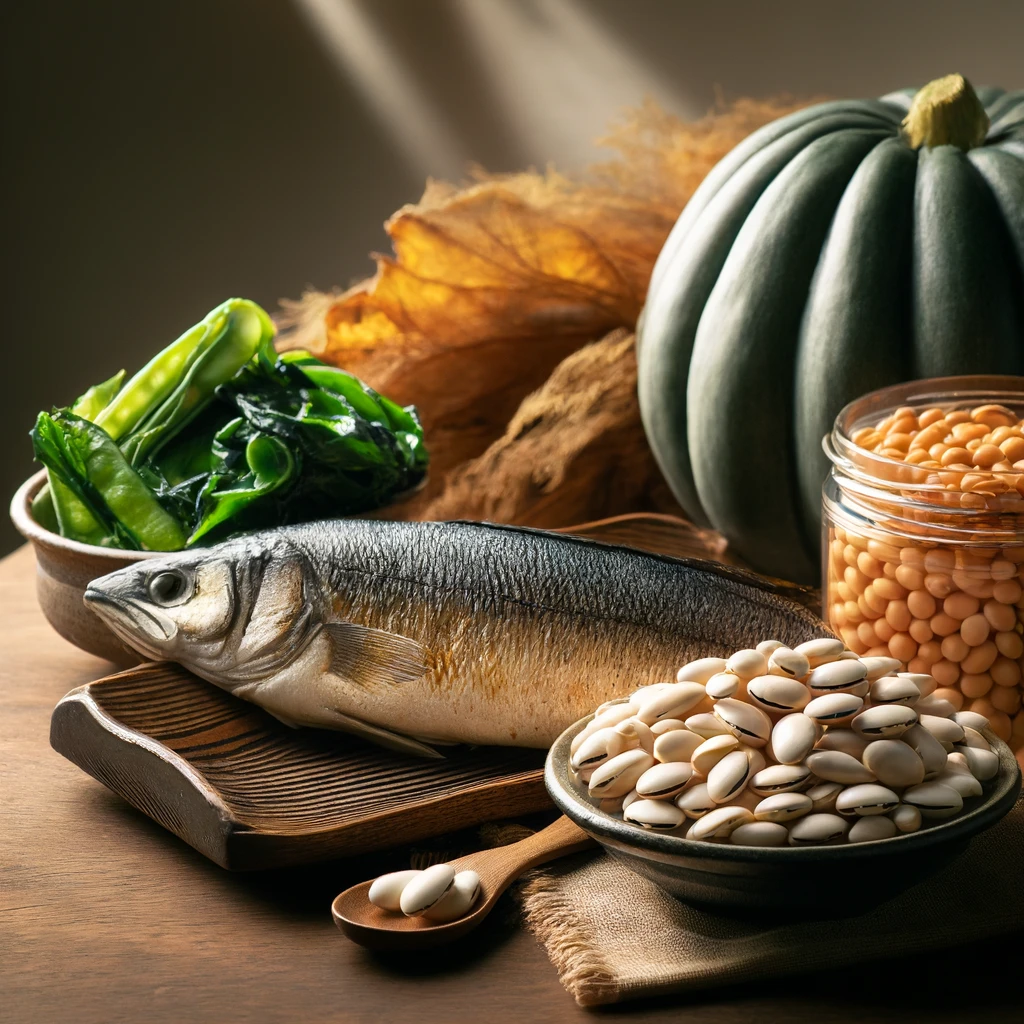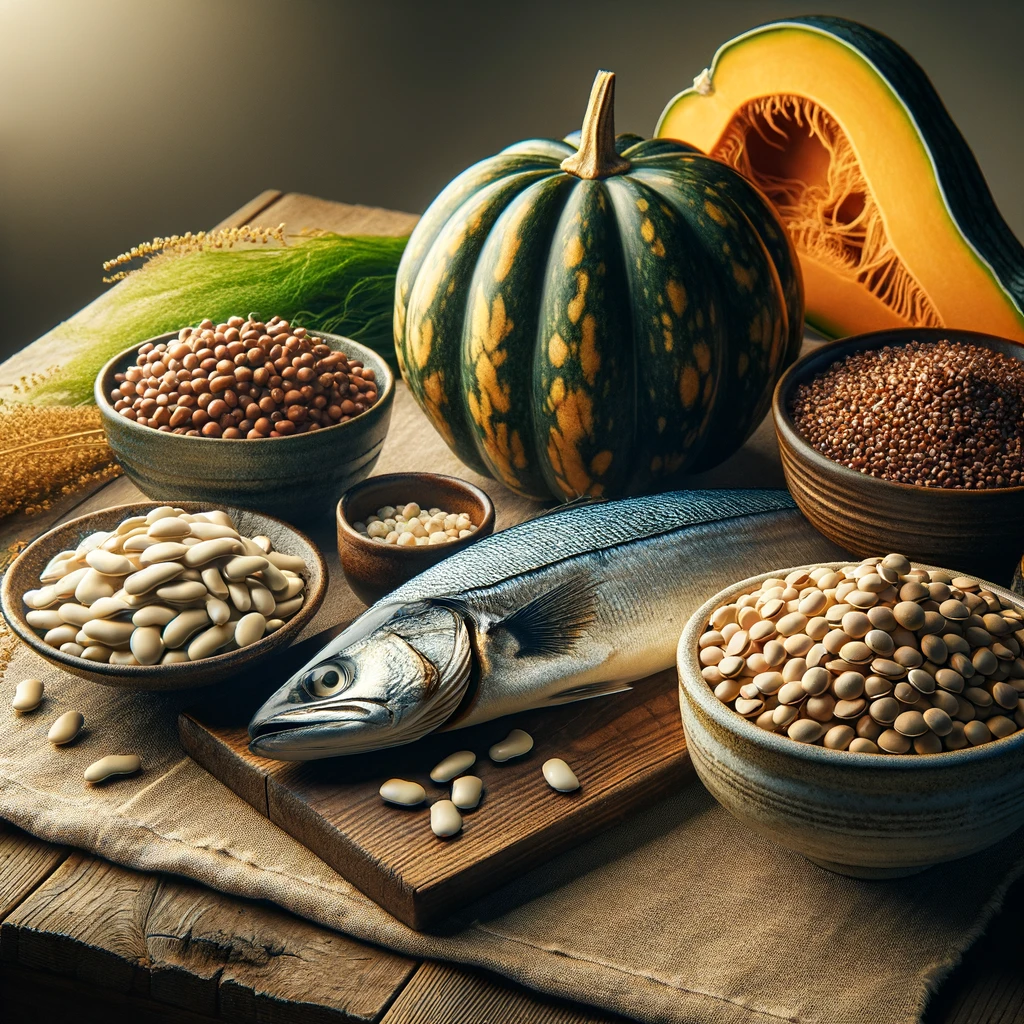Glycine is vital for collagen production which is needed in large quantities in pregnancy.
It is important to discuss serine and glycine–two amino acids essential for pregnant women, who have higher needs and are commonly deficient in these nutrients during pregnancy. Serine and glycine are two amino acids that play crucial roles in One Carbon Metabolism, working in conjunction with folate. They serve as key providers of one-carbon units necessary for the synthesis of various biomolecules. Both are non-essential amino acids, which means our bodies can synthesize them to some extent. However, their dietary remains important for optimal health, especially during pregnancy when they are considered to be conditionally essential due to insufficient synthesis under conditions such as pregnancy, trauma, and illness. If you have been ill or faced a traumatic event, you might also need more glycine.
Research indicates that during pregnancy, a woman’s ability to synthesize of glycine from serine may be insufficient, rendering external sources crucial as glycine becomes conditionally essential.
Serine and glycine are needed in higher amounts in pregnancy due to either their central role in metabolic cycles that increase in rate during pregnancy, or because they serve as precursors for molecules which are produced in much higher quantities during pregnancy. Serine acts as a central hub in One Carbon Metabolism, linking different pathways and facilitating the transfer of one-carbon units. It is derived from the glycolysis intermediate, 3-phosphoglycerate, and can be converted into glycine or used directly in synthesizing other important molecules, including purines, pyrimidines, and several amino acids.
Glycine is also a non-essential amino acid that can be synthesized from serine. It serves as a precursor for the synthesis of important compounds such as heme, creatine, and glutathione. Glycine is also involved in the formation of purines, porphyrins, and nucleotides. Additionally, glycine plays a role in the synthesis of collagen, which is essential for the growth and development of the skin, connective tissue, uterus, and placenta during pregnancy.
It’s worth noting that the consumption of collagen supplements may not necessarily increase your glycine levels, and some collagen products may contain more toxins than beneficial compounds, particularly if not sourced organically. The body does not utilize collagen molecules directly; rather the gastrointestinal track absorbs amino acids and proteins that travel to the liver, where they are released into the blood stream, not as collagen. Therefore, if you are deficient in the amino precursors that produce collagen, a supplement will provide the precursors needed to synthesize collagen. However, if you are not deficient in these amino acid precursors, a collagen supplement will not be beneficial. Of further consideration is that it is possible to intake the amino acids needed as precursors for collagen by the intake of other protein-containing foods.
Here is a great high glycine recipe: thecarmencooks.com/staging/3924/glycine-and-collagen-as-much-glycine-as-collagen-supplement-in-one-buddha-bowl/
Why Food Sources Might Be More Effective:
- Balanced Nutrient Profile: Food sources naturally contain a balance of nutrients, including vitamins, minerals, and amino acids, which work synergistically. This balance can enhance the bioavailability and effectiveness of each nutrient, including glycine and serine. For example, beets not only provide betaine, which can be converted into glycine, but also include small amounts of B5, aiding in the overall metabolic process. Without enough B5, your cells cannot uptake enough glycine or serine into the cells. When you consume a collagen supplement, you are not getting the other vitamins your body may need for assimilation of the amino acids into the skin.
- Comprehensive Nutritional Benefits: Foods like beets, spinach, and soybeans don’t just provide one or two nutrients but come packed with a broad spectrum of others that contribute to overall health, including fiber, antioxidants, and other vitamins. These compounds collectively support the body’s collagen production and general health in ways that isolated supplements may not.
- Improved Absorption and Utilization: The presence of vitamin B5 in whole foods helps ensure that glycine and serine are not only absorbed but also effectively utilized in the body. This is crucial because even if you intake these amino acids through supplements, without adequate B5, their transport into cells and overall utilization might not be as effective.
Practical Dietary Tips:
To maximize the benefits of glycine, serine, and vitamin B5, consider a diet that includes a variety of nutrient-rich foods:
- Legumes and Beans: Such as chickpeas and black beans, which are good sources of B5 and amino acids.
- Nuts and Seeds: Like almonds and sunflower seeds, which provide both vitamin B5 and amino acids.
- Vegetables: Especially dark leafy greens and those rich in betaine like beets, which help in the natural synthesis of glycine from betaine and contribute small amounts of B5.
- Specific Foods High in Glycine:
- Seafood in general
- Poultry in general
- Buckwheat
- Oats, especially uncooked oats
- Tofu
- Edamame
- Soybeans
- Beans in general
- Acorn Squash
- Almonds
- Quinoa
- Peanuts/Peanut Butter
- Fish stands out as a significant source of serine and glycine, offering much higher concentrations compared to dairy or vegetables. Fish such as coho salmon, Atlantic salmon, yellowtail, cod, eel, and trout are good choices, especially when considering low mercury content. Fish also provides a substantial amount of vitamin B6, with a serving covering around 25% of your daily needs. Additionally, fish is the primary dietary source of vitamin B12, which is essential for converting homocysteine into methionine. Fish contains a wide range of nutrients in high concentrations and should be part of every pregnant woman’s diet.

By focusing on a diet rich in these nutrients, you can support your body’s ability to synthesize and utilize amino acids effectively, promoting better overall health and specifically enhancing collagen production and maintenance in the body.
If you would like to read more about why a collagen supplement is just broken down and does not necessarily go to make skin cells, check out this article: https://thecarmencooks.com/staging/3924/why-consuming-glycine-or-serine-is-just-as-good-as-a-collagen-supplement/
Adams, J. B., et al. (2021). “Evidence-based recommendations for an optimal prenatal supplement for women in the US, part two: Minerals.” Nutrients 13(6): 1849.







